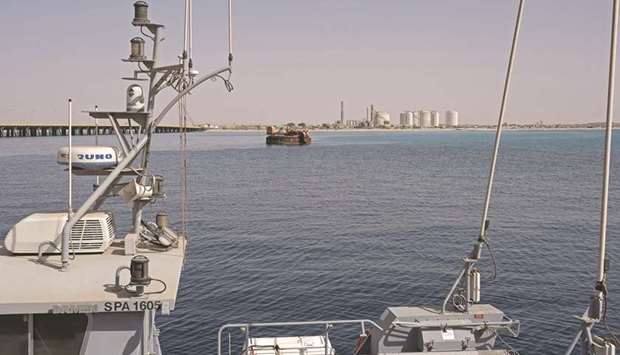Libya took a major step toward reviving its battered oil industry by reopening its biggest field, presenting a new headache for Opec+ as the alliance of major producers tries to curb global supplies.
The National Oil Corp, Libya’s state energy company, lifted force majeure on the western deposit of Sharara and instructed its operator to resume production, according to a statement yesterday. The field will initially pump 40,000 barrels of crude a day, before reaching its capacity of almost 300,000 barrels in 10 days, a person with knowledge of the situation said.
That would roughly double Libya’s overall output to about 600,000 barrels a day, said the person, who asked not to be identified because they aren’t authorised to speak to media.
Sharara’s reopening follows a truce in Libya’s long-running civil war that’s already led to many oil fields and ports in the east starting up after an almost total shutdown since January.
While Libya is an Opec+ member, it’s exempt from the group’s supply cuts, initiated in May as the coronavirus pandemic battered economies and caused oil prices to tank. The alliance planned to ease the curbs by 2mns barrels a day from the start of 2021.
Yet with virus cases accelerating in many countries, the alliance faces a difficult decision at its next policy meeting on November 30-December 1 to stay the course or delay the increase in production. Benchmark Brent crude has more than doubled to $42.85 a barrel since May, but it’s still down 35% this year.
“The Libyan oil restart is gaining momentum faster than most people expected,” said Bill Farren-Price, a director at energy analytics firm Enverus. The likelihood of more Libyan exports is “an additional headwind for Opec at a time when it is already grappling with softer than expected demand as the second wave of Covid-19 intensifies.”
The NOC, based in the Libyan capital of Tripoli, said it reached a “gentlemen’s agreement” with militias known as the Petroleum Facilities Guard that were nearby Sharara. The militias are obliged to “end all obstacles” hindering operations at the field, the NOC said. That came after UN-sponsored talks this month in Egypt, which were partly about restoring security at Libya’s oil facilities.
Libya was producing 1.2mn barrels a day last year. Khalifa Haftar, a commander who controls much of the east, blockaded ports and fields in mid-January as he attempted to unseat the UN-supported government in Tripoli. Libya has pumped less than 100,000 barrels a day since then, most of it from offshore fields.

A view of the Zueitina oil terminal, west of Benghazi, Libya on October 4. While Libya is an Opec+ member, it’s exempt from the group’s supply cuts, initiated in May as the coronavirus pandemic battered economies and caused oil prices to tank.
